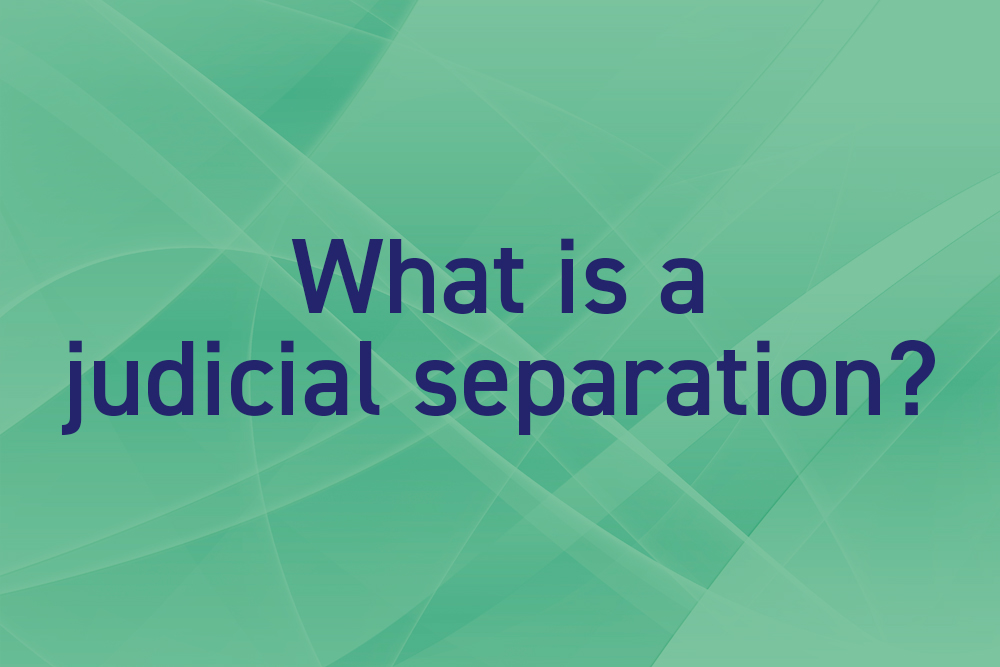Judicial separation is where you and your spouse formally separate and this separation is recognised by the Court. Judicial separation is rare and is usually used due to religious reasons.
As with divorce, a petition for judicial separation will need to be filed with the Court and there is a Court fee in the sum of £365.00. The separation is also based on the same five facts as divorce, namely, unreasonable behaviour, adultery, two years separation by consent, two years desertion or five years separation without consent.
What is the effect of judicial separation?
Judicial separation has three main effects:
- The parties no longer have an obligation that they must live together;
- The court can make many of the financial and children orders that can be made during divorce proceedings; and
- If either party dies intestate, their property devolves as if the spouse was also dead. However, if there is a provision in party’s will which leaves property to the spouse, they will benefit despite judicial separation, this is in contrast to the position had there been a divorce.
It must be remembered that judicial separation does not legally end the marriage.
What are the differences to divorce?
Other than the position regarding wills, the key differences between judicial separation and divorce are:
- A petition for judicial separation can be filed within the first year of marriage.
- The Court does not need to consider whether the marriage has broken down irretrievably, as parties will remain married. The court does however need to be satisfied that one of the above facts has been proven.
- There is one decree of judicial separation, unlike in divorce proceedings where there are two (decree nisi and decree absolute).
- Judicial separation may not have the same effect on pensions and insurance policies and courts are unable to make a pension sharing order in judicial separation proceedings.
If you are considering judicial separation we would suggest that you seek legal advice as soon as you can to discuss your options. To arrange an appointment please call us on 01904 558600.


